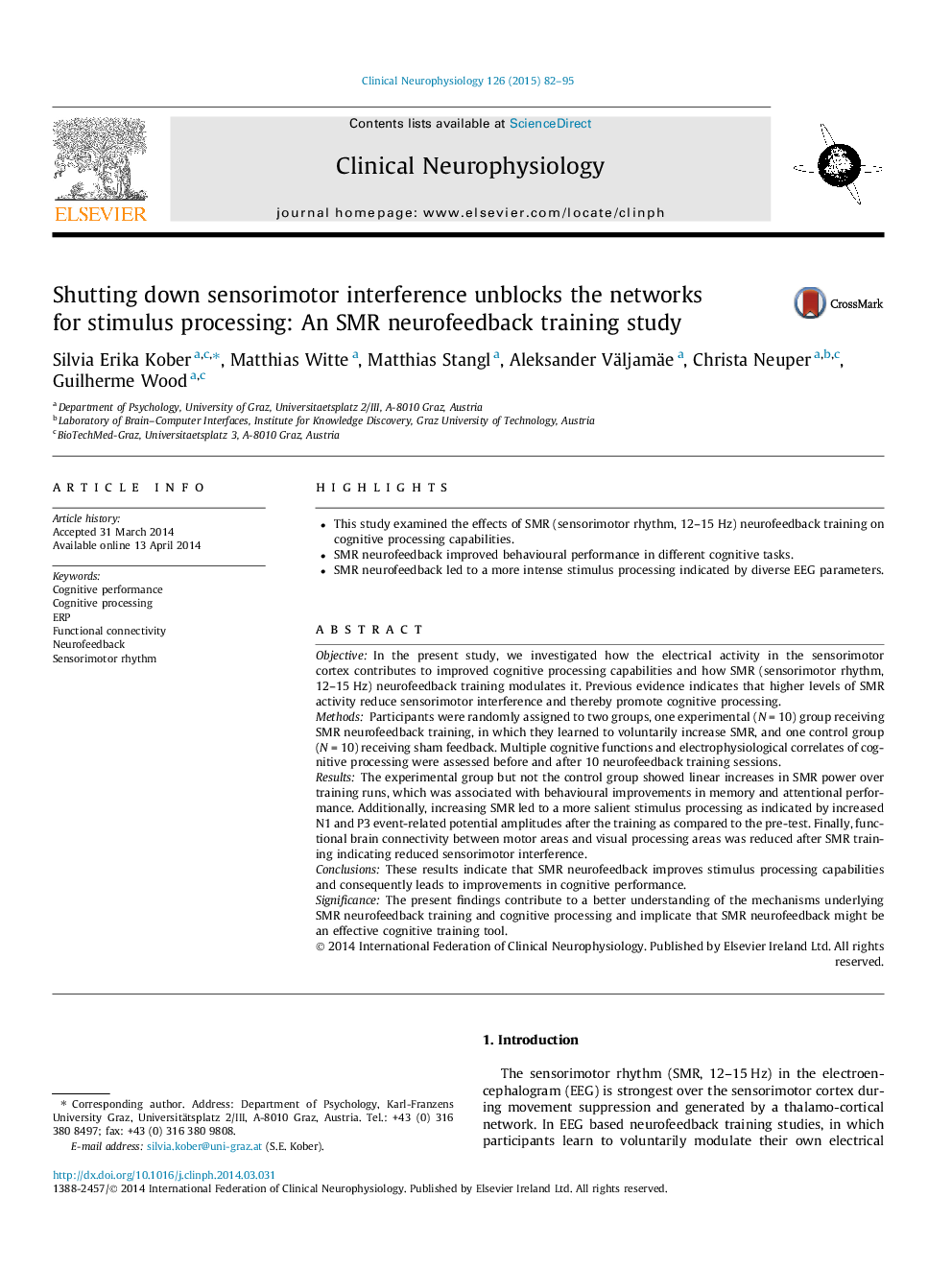| Article ID | Journal | Published Year | Pages | File Type |
|---|---|---|---|---|
| 3043213 | Clinical Neurophysiology | 2015 | 14 Pages |
•This study examined the effects of SMR (sensorimotor rhythm, 12–15 Hz) neurofeedback training on cognitive processing capabilities.•SMR neurofeedback improved behavioural performance in different cognitive tasks.•SMR neurofeedback led to a more intense stimulus processing indicated by diverse EEG parameters.
ObjectiveIn the present study, we investigated how the electrical activity in the sensorimotor cortex contributes to improved cognitive processing capabilities and how SMR (sensorimotor rhythm, 12–15 Hz) neurofeedback training modulates it. Previous evidence indicates that higher levels of SMR activity reduce sensorimotor interference and thereby promote cognitive processing.MethodsParticipants were randomly assigned to two groups, one experimental (N = 10) group receiving SMR neurofeedback training, in which they learned to voluntarily increase SMR, and one control group (N = 10) receiving sham feedback. Multiple cognitive functions and electrophysiological correlates of cognitive processing were assessed before and after 10 neurofeedback training sessions.ResultsThe experimental group but not the control group showed linear increases in SMR power over training runs, which was associated with behavioural improvements in memory and attentional performance. Additionally, increasing SMR led to a more salient stimulus processing as indicated by increased N1 and P3 event-related potential amplitudes after the training as compared to the pre-test. Finally, functional brain connectivity between motor areas and visual processing areas was reduced after SMR training indicating reduced sensorimotor interference.ConclusionsThese results indicate that SMR neurofeedback improves stimulus processing capabilities and consequently leads to improvements in cognitive performance.SignificanceThe present findings contribute to a better understanding of the mechanisms underlying SMR neurofeedback training and cognitive processing and implicate that SMR neurofeedback might be an effective cognitive training tool.
